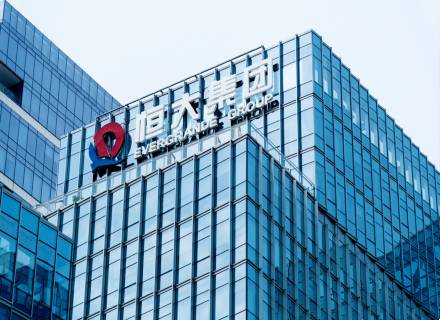On September 14, Chinese real estate developer Evergrande told investors through a letter that deterioration of cash collection would put tremendous pressure on the Group’s cash flow and liquidity. The developer has a liability of over $300 billion and this makes it the most indebted real estate company in the world.
Since its inception in 1996, the real estate developer has established itself as one of the largest developers in the county riding on a real-estate boom that allowed it to expand into over 280 cities across China. However, the real estate boom has slowed down and in the last couple of years and the company started to diversify into sectors such as electric vehicles, football and even bottled water.
Parallels have been drawn to the ‘Lehman Brother crisis of 2008’ which ultimately led to its collapse and pushed the global economy into a recession. However, some analysts have pointed the fact that Evergrande’s debt is not widely spread when compared to the debt of the Lehman Brothers. While analysis is being done, the true extent of the crisis is not fully known as of yet.
Investors in cautious mode
Since the crisis emerged, the Dow Jones Industrial Average dropped by over 600 points this week, while the Nasdaq composite fell by 2 percent. In Japan, the Nikkei 225 index closed 2.2 percent lower on Monday trading. The S&P 500, too fell 2.24 percent.
Shares of Evergrande had plunged tremendously as well, and it has made investors across the globe cautious. The developer has two payments due this month- firstly, an $83 million interest payment due and another repayment of $47.5 million for a different bond. Analysts and experts have raised concerns that Evergrande is most likely to fail to repay these bonds. There are growing concerns that it will negatively impact China’s finances which is notably one of the largest commodity consumers in the world. The only way out for them is restructuring these bonds with the help of banks.
Government bailout unlikely for Evergrande
As things stand, it seems very unlikely that the Chinese government is considering bailing out Evergrande. The Chinese government has decided to maintain silence so far when it comes to the Evergrande crisis. Credit rating agency S&P Global Ratings too feels it is unlikely that the Chinese government will rescue the developer.
However, state-owned media house Global Times, which is often regarded as the mouthpiece for the government, did blame Evergrande for the situation it finds itself in with the editor of Global Times saying, “Evergrande stretched the rubber band too tightly.”
The Chinese government has been cracking down on its domestic companies since last year. Companies such as Jack Ma’s Ant Group and payment giant Ant Group have cover under immense scrutiny from the government. The same goes in the case of the real estate sector. Reforms were introduced last year to restrict perilous borrowing and to tackle rising bad loans.
Evergrande and economic implications
The global economy was pushed into a recession last year due to the Covid-19 pandemic. Now, there is a growing concern that the Evergrande crisis could push the economy into another mess. If Evergrande goes bust, it will have a catastrophic effect on the Chinese financial system and its ripple effect will be felt by other domestic sectors in the country. This will ultimately impact the Chinese economy.
While most of the countries collaborate with China for reasons such as trade, the impact could also be felt on the global economy. The impact will be felt by foreign financial institutions and businesses that have operations in China or in sectors such as finance and real estate.
There are also concerns that if Evergrande collapses, banks in China will restrict borrowings, which is currently pivotal for China and its path to economic recovery from the Covid-19 pandemic.

